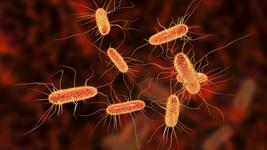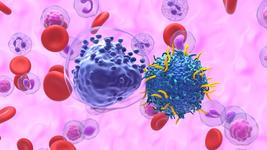HuidaGene Receives Special Designation for Potentially New CRISPR Therapy for Duchenne Muscular Dystrophy
CMN Intelligence - The World’s Most Comprehensive Intelligence Platform for CRISPR-Genomic Medicine and Gene-Editing Clinical Development
Providing market intelligence, data infrastructure, analytics, and reporting services for the global gene-editing sector. Read more...
Shanghai- and New Jersey-based HuidaGene Therapeutics is developing HG302 as a novel, first-in-class treatment for Duchenne muscular dystrophy (DMD).
The company recently announced that the FDA has granted Orphan Drug Designation to HG302 for the treatment of DMD. HG302 was previously granted Rare Pediatric Disease Designation by the FDA.
DMD arises through mutations in the dystrophin-encoding gene
DMD is an X-linked recessive disease that arises through mutations in the DMD gene, which is located on the short arm of the X chromosome. The DMD gene encodes the dystrophin protein, which plays a critical role in stabilising skeletal and cardiac muscle. Mutations in DMD prevent the production of healthy dystrophin.
DMD is estimated to affect appoximately 1 in 3,500 to 1 in 9,300 males worldwide, and there is currently no cure. In rare cases, female carriers of a mutated DMD allele may be affected. Conventional treatment approaches involve a combination of medication and physical therapy, which aim to slow disease progression. Corticosteroids are used as standard care to slow degenerative muscle progression, while physical activation of the muscles is implemented to sustain or build muscle mass. Surgery and braces may be used to help control muscle contractions.
How does HG302 work?
HG302 is a CRISPR-based DNA-editing therapy that uses a high-fidelty Cas12i variant (hfCas12Max, developed by HuidaGene) and gRNA to specifically target a human DMD exon 51 splice-donor (SD) site.
Disruption of the DMD exon 51 SD site by HG302 results in exon 51 skipping, which should result in restoration of the open reading frame from exons 50 to 53. This edit restores functional dystrophin protein expression and improves muscle function. The gene-editing cargo is delivered intravenously via a single viral vector, which is made possible by the smaller size of hfCas12Max compared to Cas9.
In an earlier press release, HuidaGene Therapeutics shared that HG302 effectively generates stable genome edits with minimal off-target effects in vitro and in vivo, that a single intravenous injection of HG302 restores functional dystrophin protein expression, and that HG302 demonstrates therapeutic effects by improving muscle functions in humanised DMD mice.
Exon skipping therapies are designed to restore dystrophin function
In recent years, four antisense olignonucleotide (ASO) therapies have received FDA approval for DMD. These work by binding to the pre-mRNA dystrophin transcript. When bound to that transcript, the ASOs function as molecular patches that force the translation machinery to skip certain exons of the DMD gene. This restores the reading frame to yield truncated dystrophin variants that retain some function. Such variants may maintain muscle integrity and produce a less severe disease phenotype. It is estimated that about 8% of patients with DMD carry a mutation amenable to exon 53 skipping, while approx. 13% of patients carry a mutation amenable to exon 51 skipping.
The approved ASO therapies include eteplirsen (exon 51, Sarepta Therapeutics), golodirsen (exon 53, Sarepta Therapeutics), viltolarsen (exon 53, NS Pharma) and casimersen (exon 45, Sarepta Therapeutics). each induce skipping of a single exon and may be used to treat patients with mutations in exons 45, 51 or 53, which account for about 30% of all DMD cases.
As of yet, the European Medicines Agency has not approved any of the ASOs, but it did approve ataluren (PTC Therapeutics), a premature stop codon readthrough therapy to treat paediatric DMD caused by nonsense mutations in 2014.
One gene therapy approved for a subset of DMD patients
In June 2023, the FDA approved Elevidys (Sarepta Therapeutics and Roche) as the first gene therapy for DMD. Elevidys is a single-dose adeno-associated virus-based gene therapy that functions by delivering a gene encoding a truncated version of dystrophin - which is known as ELEVIDYS micro-dystrophin - to muscle cells. In addition, Elevidys delivers a muscle-specific promoter that enhances the expression of micro-dystrophin in the heart and skeletal muscles.
Elevidys is indicated for the treatment of DMD patients between 4 and 5 years of age who are still able to walk, and who are confirmed to carry a particular mutation in the DMD gene, but is not suitable for DMD patients with any deletion in exon 8 and/or exon 9 of the DMD gene.
Stay tuned for updates about HG302
HuidaGene Therapeutics is currently undertaking IND-enabling studies for HG302. We will continue to provide updates on this programme as they emerge.
Check out our extensive collection of clinical trial updates and our clinical trial listing to learn more about ongoing clinical trials, and stay tuned for regular clinical and research updates.
To get more CRISPR Medicine News delivered to your inbox, sign up to the free weekly CMN Newsletter here.
Tags
ArticleNewsClinical News UpdatesAdeno-associated virus (AAV)Duchenne Muscular Dystrophy, DMDCas12HuidaGene Therapeutics
CLINICAL TRIALS
Sponsors:
Base Therapeutics (Shanghai) Co., Ltd.
Sponsors:
Base Therapeutics (Shanghai) Co., Ltd.







